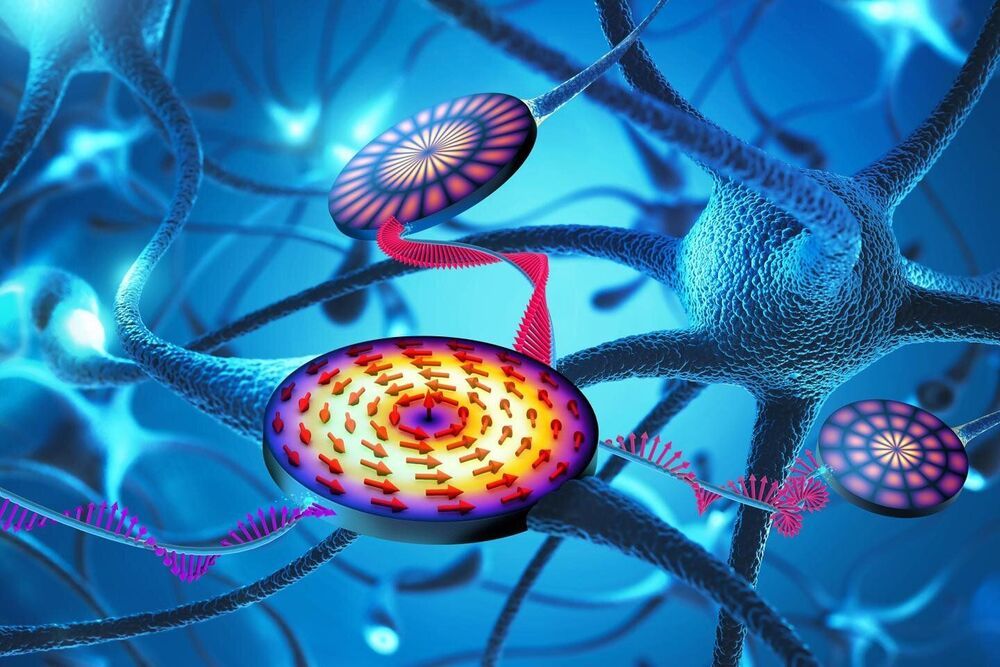Amnesia:33 is the latest in a long line of vulnerabilities that affect countless embedded devices.


On December 8th, SpaceX plans to conduct its most ambitious test flight yet of its Starship prototype, sending the vehicle to an altitude of 12.5 kilometers, or nearly 8 miles high.

Neural networks are some of the most important tools in artificial intelligence (AI): they mimic the operation of the human brain and can reliably recognize texts, language and images, to name but a few. So far, they run on traditional processors in the form of adaptive software, but experts are working on an alternative concept, the ‘neuromorphic computer.’ In this case, the brain’s switching points—the neurons—are not simulated by software but reconstructed in hardware components. A team of researchers at the Helmholtz-Zentrum Dresden-Rossendorf (HZDR) has now demonstrated a new approach to such hardware—targeted magnetic waves that are generated and divided in micrometer-sized wafers. Looking to the future, this could mean that optimization tasks and pattern recognition could be completed faster and more energy efficiently. The researchers have presented their results in the journal Physical Review Letters.
The team based its investigations on a tiny disc of the magnetic material iron nickel, with a diameter just a few micrometers wide. A gold ring is placed around this disc: When an alternating current in the gigahertz range flows through it, it emits microwaves that excite so-called spin waves in the disc. “The electrons in the iron nickel exhibit a spin, a sort of whirling on the spot rather like a spinning top,” Helmut Schultheiß, head of the Emmy Noether Group “Magnonics” at HZDR, explains. “We use the microwave impulses to throw the electron top slightly off course.” The electrons then pass on this disturbance to their respective neighbors—which causes a spin wave to shoot through the material. Information can be transported highly efficiently in this way without having to move the electrons themselves, which is what occurs in today’s computer chips.
Back in 2019, the Schultheiß group discovered something remarkable: under certain circumstances, the spin wave generated in the magnetic vortex can be split into two waves, each with a reduced frequency. “So-called non-linear effects are responsible for this,” explains Schultheiß’s colleague Lukas Körber. “They are only activated when the irradiated microwave power crosses a certain threshold.” Such behavior suggests spin waves as promising candidates for artificial neurons because there is an amazing parallel with the workings of the brain: these neurons also only fire when a certain stimulus threshold has been crossed.

What a tough time for Cyberpunk 2077 to be launching. The newest graphics cards are unavailable unless you’re willing to overpay a scalper, and older GPUs are also hard to buy at a reasonable price because of the shortage of new ones.
The good news is that the official Cyberpunk 2077 minimum specifications are surprisingly modest, especially if you’re OK with playing at 1080p. If you want to slide everything to high at that resolution, then you’re looking at a Core i7 4790 or AMD Ryzen 3 3200G, with a GeForce GTX 1060/1660 Super or Radeon RX 470, and 12GB of RAM. That’s really not too demanding, especially from the processor perspective.

Circa 2018
Scientists have created an ultrathin, flexible film that can emit laser light — and successfully tested it on a contact lens, demonstrating the possibility of laser eye-beams.
Before you rush out and buy a Cyclops-style visor, it’s not even close to powerful enough to cause damage. Instead, the researchers say, the technology has potential for use as wearable security tags, or even as a type of laser barcode.
The membranes containing the material are less than a thousandth of a millimetre thick, and flexible, which means they can easily be stuck to, or embedded into, polymer banknotes, or the soft plastics used for flexible contact lenses.

Researchers at Oregon State University are making key advances with a new type of optical sensor that more closely mimics the human eye’s ability to perceive changes in its visual field.
The sensor is a major breakthrough for fields such as image recognition, robotics and artificial intelligence. Findings by OSU College of Engineering researcher John Labram and graduate student Cinthya Trujillo Herrera were published today in Applied Physics Letters.
Previous attempts to build a human-eye type of device, called a retinomorphic sensor, have relied on software or complex hardware, said Labram, assistant professor of electrical engineering and computer science. But the new sensor’s operation is part of its fundamental design, using ultrathin layers of perovskite semiconductors—widely studied in recent years for their solar energy potential—that change from strong electrical insulators to strong conductors when placed in light.

O,.o.
Livescience.com | By LIVESCIENCE
A high-tech model with the look and feel of actual human tissue helps medical professionals train to perform surgery on the real thing.


Part of my series to give a good grounding in the basics surrounding the subject of human health and longevity, for anyone interested, this week it is Sirtuins.
Are they one of the keys to the door towards ending aging?
I give a basic explanation of what sirtuins are and how they are being investigated for their influence on health span and length of life.
Sirtuin signaling in cellular senescence and aging
http://www.bmbreports.org/journal/view.html?uid=1333&vmd=Full&
Sirtuins and NAD+ in the Development and Treatment of Metabolic and Cardiovascular Diseases